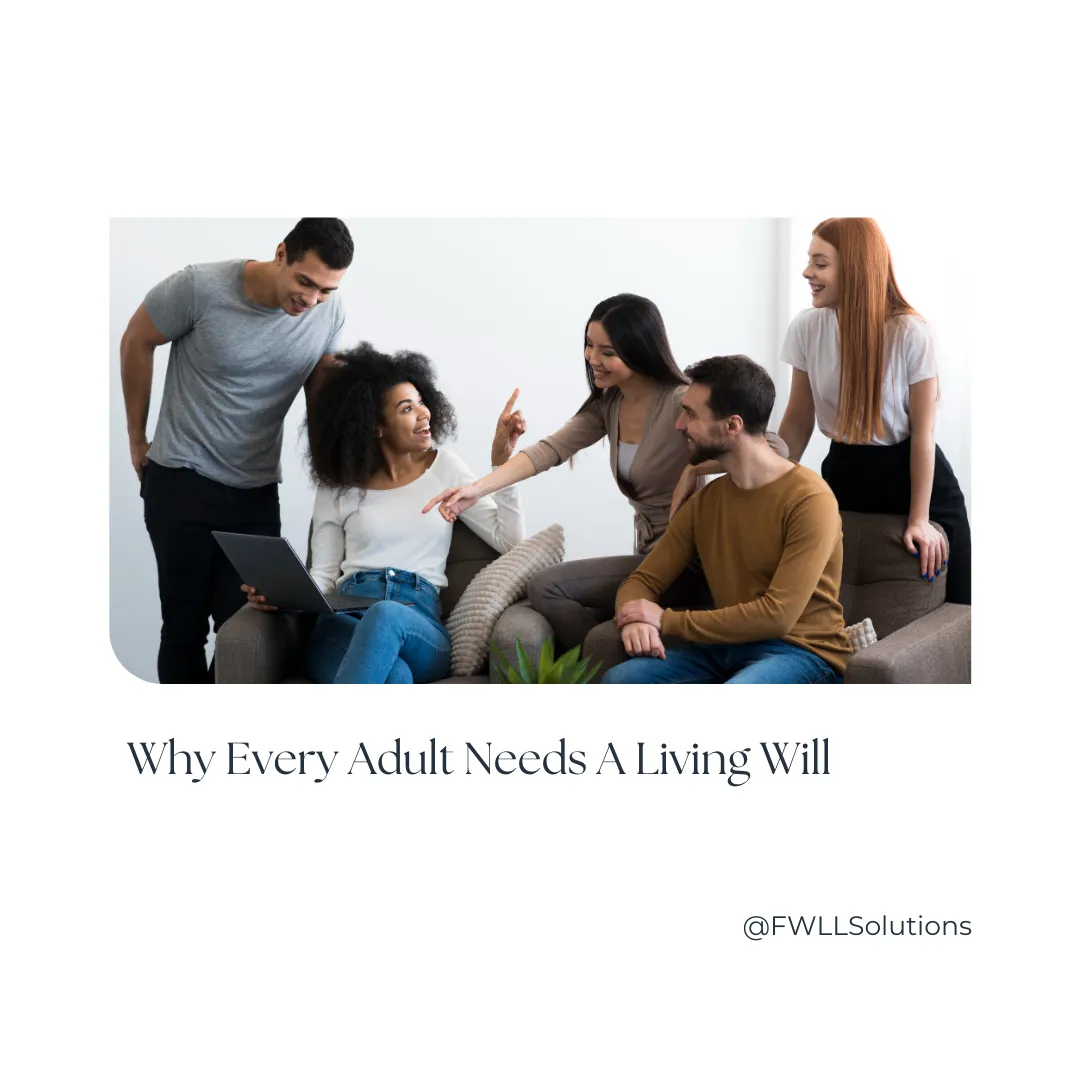
But you may have also heard people talk about a “Living Will” and wonder what that is, and whether you need a Living Will, in addition to a regular Last Will and Testament.
Both terms describe important legal documents used in estate planning, but their purpose and function differ significantly. In this article, we will review some of the most critical things you need to know about Living Wills and why having a Living Will is essential to every adult’s estate plan. And it may be that a Living Will is even more important than a Last Will and Testament.
What Is a Living Will?
A Living Will, also called an “Advance Healthcare Directive,” is a legal document that tells your loved ones and doctors how you want your medical care handled if you become incapacitated and cannot make decisions for yourself, particularly at the end of life. Specifically, a Living Will outlines the procedures, medications, and treatments you would want and would not want to prolong your life if you cannot make such decisions yourself.
For example, within the terms of your Living Will, you can articulate certain decisions, such as if and when you would want life support removed, should you ever require it, and whether you would want hydration and nutrition supplied to prolong your life.
Beyond instructions about your medical care, a Living Will can even describe what type of food you want and who can visit you in the hospital. These are critical considerations for your well-being at a time of greatest need for you. And if you haven’t provided any specific instructions, decisions will be made on your behalf that you likely may not have wanted. For instance, if you remember Terry Shaivo’s story, if she had a Living Will her family would not have been forced to endure seven (7) brutal years of fighting in court to decide whether she should continue to receive life sustaining treatment and remain on a feeding tube for the remainder of her life in a vegetative state.
Living Will vs. Last Will & Testament
Upon death, a Last Will and Testament will ensure your assets are distributed in the way you would have wanted. Just to be clear, your Will only deals with your assets and only becomes effective upon your death. In contrast, a Living Will is about you, not your assets. And it operates in the event of your incapacity, not your death.
In other words, your Last Will tells your family and the court what you want to happen to your wealth and property after you die, while a Living Will tells others how you want your medical treatment managed while you are still alive. Both are extremely important for you at different stages of life and can help you to avoid many of life’s most common legal problems, cautionary tales and click-bait that are unfortunately far too common.
Living Will vs. Medical Power of Attorney
If you’ve heard the term, “Medical Power of Attorney” that document is typically a part of your Advance Healthcare Directive, which allows you to legally name a person, known as your “agent,” to make healthcare decisions for you if you are incapacitated and unable to make those decisions yourself. If you want to get fancy, you can also choose a panel of people, with the assistance of your treating physician, to make those decisions for you.
Simply put, a Medical Power of Attorney names those who can make medical decisions in the event of your incapacity, while a Living Will explains how you would want your medical care handled during your incapacity.
Why Having a Living Will Is So Important
A Living Will is a vital part of every adult’s estate plan (including college age children over the age of 18), as it can ensure your medical treatment is handled exactly the way you want if you cannot communicate your needs and wishes. Additionally, a Living Will can prevent your family from undergoing needless trauma and conflict during an already trying time. These documents allow your family, friends, significant others and loved ones to communicate with your doctors, receive updates on your care, provide direction on what you wanted, access your medical records and be involved in the decision-making process.
Without a Living Will, your family would have to guess what treatments you might want, and your loved ones are likely to experience stress and guilt over the decisions they make on your behalf. In worst cases, your family members could even end up having to hire lawyers and spend their hard-earned money to battle one another in court over who should manage your medical care and how that care should be managed. Yet, these problems can be easily avoided by documenting your wishes and providing legal authority to loved ones you know and trust to follow your instructions and make difficult decisions on your behalf.
Should You Rely On a Living Will Created Online?
While there is a wide selection and a multitude of options when researching Living Wills, a Medical Power of Attorney, and other Advance Directive documents online, you likely want more guidance and peace of mind than is available through an online service to support you to adequately address such critical decisions. Regarding your medical treatment and end-of-life care, you have unique needs and wishes that cannot be anticipated or adequately addressed by generic documents or without the counseling and guidance we can provide through your decision-making process. Not to mention, that there are very specific legal requirements that must be met for your documents to be legally valid. Unfortunately, most of my own friends and family who created an online estate plan did not complete or sign their documents correctly, so their documents were not worth the paper they were written on. Inevitably, when I asked how this happened and took them through our planning process – each one of my family and friends has simply told me that they didn’t know and weren’t told that they needed to sign in a certain way, or create various additional documents that would have addressed certain planning issues that they felt were extremely important for their family.
To ensure your directives are tailored to suit your unique situation, work with experienced estate planning professionals like us, to support you to create and/or review your Living Will.
How We Can Help
Even if you have a professionally prepared and well-thought-out Living Will, it won’t be worth the time and money you put into creating them if nobody knows about it. A Living Will goes into effect and becomes legally binding the second you sign it, so you should immediately deliver copies to your agent, alternate agents, primary care physician, and other medical specialists.
Additionally, don’t forget to give those folks new versions whenever you update those documents and have them destroy the old version. As your Personal Family, Wealth & Legacy Lawyer, delivering the latest copies of your living will and other estate planning documents is a standard part of our planning process. We assist our clients in ensuring that everyone who needs your documents always has the latest version.
And since unforeseen illness or injury could strike at any time. Don’t wait to plan your will. Contact us to get this critical document in place. Call us today to schedule an appointment.
This article is a service of Family Wealth & Legacy Legal Solutions (FWLLS). We do not just draft documents; we ensure you make educated, informed and empowered decisions about life and death, for yourself and the people you love. That’s why we offer a Family Wealth & Legacy Strategy Session™, during which you will get more organized than you’ve ever been before and make all the best choices for the people you love. You can begin by calling our office today to schedule a Family Wealth & Legacy Strategy Session and mention this article to find out how to get this $750 session at a significantly discounted rate, or even for free.


